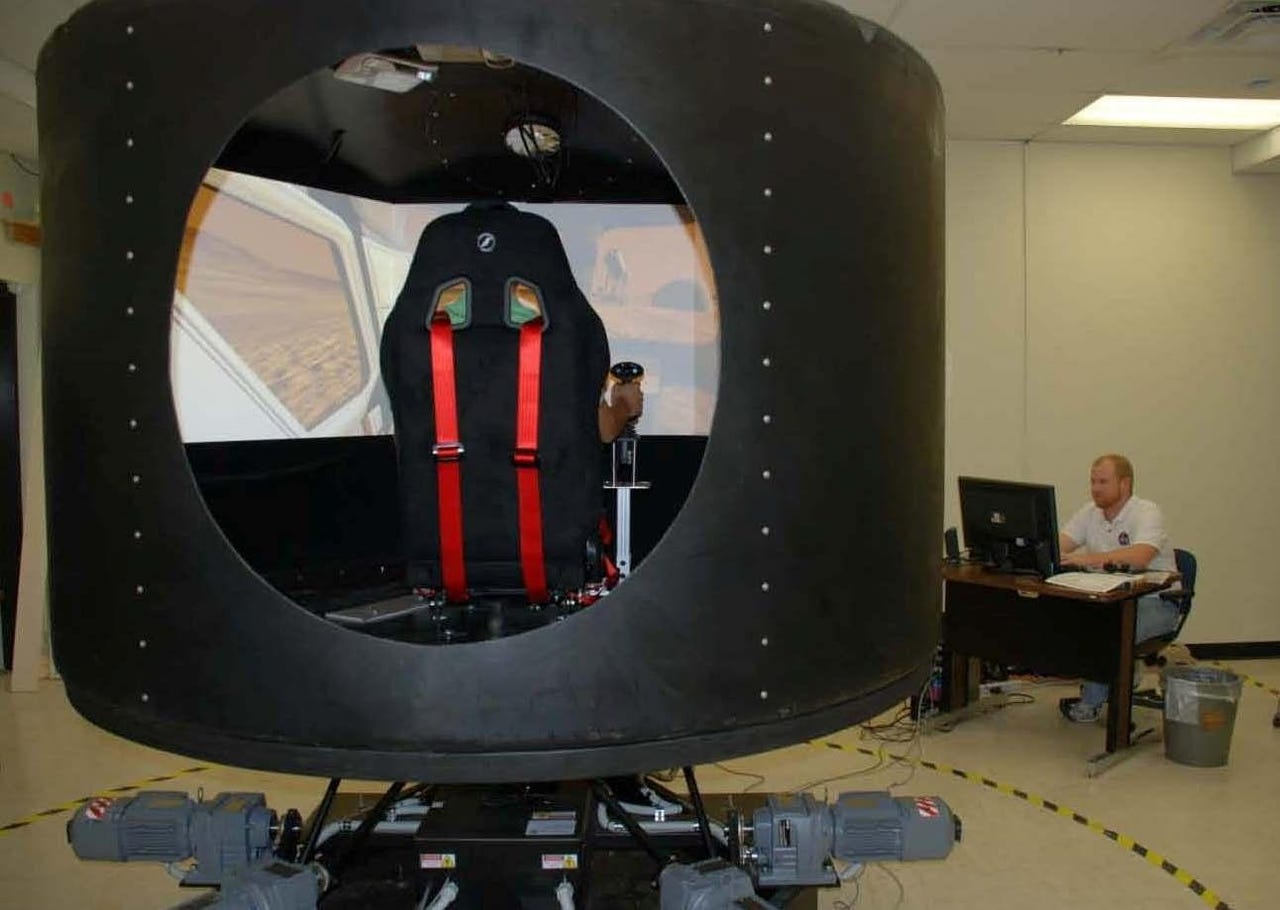From garage to Mars: Improving SMB reach with connectivity

CKAS Mechatronics founder Chris Kasapis developed motion simulators as a PHD project using a combination of maths, software, and lower-cost components to create a realistic experience that rivalled more expensive competitors in the space. From that moment, he knew he was onto something.

"It became apparent that the technology was quite sellable and in demand," he said.
Kasapis quickly set up shop in his garage, where he worked on turning the technology into an actual product.
"The first three years were very much about development and a lot of 'in the lab' kind of years. These days, we are a full-blown manufacturer. We produce in the order of 100 units a year, which in the simulation world is actually quite a lot," he said.
CKAS Mechatronics' motion-simulation technology has been used in everything from flight, racing, mining, and deep-sea simulators to even the Mars Rover — its clientèle includes some big names such as NASA and the Airbus Group.
"NASA was looking for a motion solution for their Mars Rover simulators, and by that stage, our goodwill or reputation on the world scene was high enough for NASA to call us and to research us, and through their research, they shortlisted and then selected us out of all our competitors who were several thousand times larger than us."
Despite its commercial success, the Melbourne-based company still operates as a small business with only 10 employees.
"Our competitors might be a lot bigger and have a lot more money, but we are a lot smaller and we are far more nimble, and that means that when a customer asks for a variation or something different, we can respond very quickly and very efficiently."
In spite of punching well above its weight, the company was struggling to overcome geographical hurdles in international markets — a problem that its American and Netherlands-based competitors like Moog and E2M didn't have.
"There is a running joke in aviation that Australia must be in the middle of the world, because it seems to be 24 hours from everywhere. The fact is that we are not in the middle of the world, but we are very far from everywhere, which makes it very difficult for a business," he said.
"We would have to convince our American customers that they should purchase something from a company in a different time zone who is really far away, and we have to convince them that we can support that, rather than getting something from a company or supplier from literally down the road."
Kasapis said that having access to high-speed internet, which the business has been taking advantage of since the National Broadband Network (NBN) rollout hit Tullamarine in June, has single handedly levelled the playing field.
"A big thing for our customers is that they need to see that we can support them and respond almost instantly to requests. The quickest and most efficient way to deliver support is via bandwidth-heavy applications like screen sharing and high-speed video, which was impossible to do given the connection speeds in Australia," admitted Kasapis.
"When you are trying to analyse a phenomena that is occurring on a machine or some sort of device is doing something it shouldn't and the customer is asking you why that is happening, you need really high-resolution video feeds or real-time screen sharing to be able to see that. You need to be able to see graphs which are changing on the customer's screen really fast. That has been a big hurdle in the past, especially when you are dealing with European or American customers who have nice high-speed connections," he added.
"The NBN immediately makes a big difference to us in that we are easily able to download much faster rates of data, which means that we can see phenomena or effects which are happening in real time at the customer's site, rather than trying to describe them over the phone. That has been a big difference for us."
Kasapis said that the 100Mbps down, 40Mbps up connection has also made an impact on how the business collaborates with its suppliers.
"We collaborate with companies around the world, especially software companies who provide software for our simulators. Some of those companies are in Norway, some are in the US, so for us to collaborate with them, what we need is a very high upload rate for screen sharing effectively so that they can support us, and again, the NBN has been instrumental in making that happen," he said.
"In the future, we expect to see savings in time and money as we reduce the need to travel to international jobs because we can connect with overseas clients and suppliers instantly over HD video conferencing services."